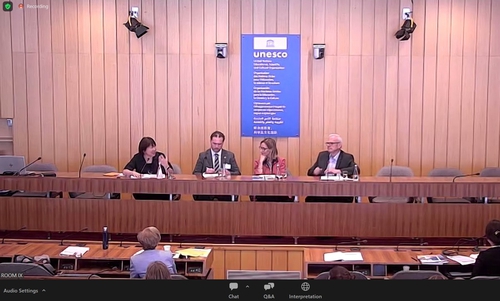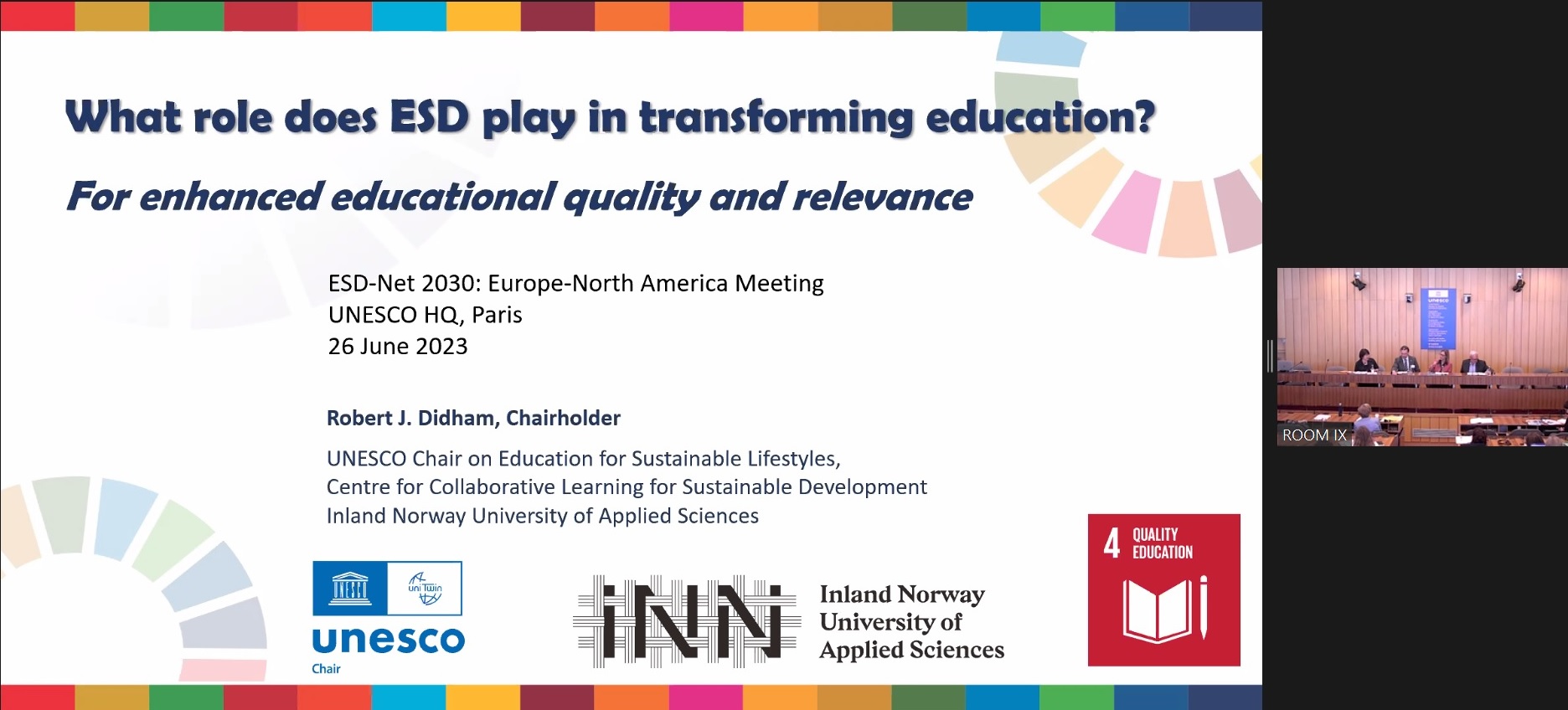UNESCO Chair holder on education for sustainable lifestyles at INN University, Robert J. Didham, was an invited panelist and spoke at UNESCO HQ in Paris during the Europe and North America regional meeting of “ESD-net 2030” which took place from 26-27 June 2023. Robert was a panelist alongside Charles Hopkins, UNESCO Chair holder in Reorientating Education towards Sustainability, York University, Canada and Hilligje van't Land, Secretary General, International Association of Universities (IAU). The theme of the panel was on "What role does education for sustainable development play in transforming education?”, and it was chaired by Jun Morahashi, Chief of the Section of Education for Sustainable Development at UNESCO.

Robert Didham stated the following: "I feel very honored to have the opportunity to present with Charles and Hilligje at this meeting, and I am glad that our panel was able to give some inspiration towards the overall direction of discussions that occurred over these two day."
UNESCO's aim with the meeting was to strengthen cooperation and partnerships between member states and stakeholders in Europe and North America. Participants shared examples of good practice, resources and opportunities with each other and partners from the same region. The meeting became a platform for stakeholders to talk together, form partnerships and identify which strategies should be strengthened to achieve education for sustainable development in the partner countries.
The meeting came about after two regional webinars in March, organized by UNESCO, UNECE, and the European Commission, where participants discussed, among other things, challenges in the design of ESD initiatives that are relevant for different countries with different needs, regions and communities. They also highlighted the importance of collaboration with stakeholders such as non-governmental organizations, academia and the private sector to provide support for the implementation of various ESD initiatives.
Background for the meeting:
UNESCO has developed a global framework called Education for Sustainable Development: Towards achieving the SDGs (ESD for 2030). The framework will be implemented in the period 2020-2030 and builds on the work done under the Global Action Program on ESD (GAP, 2015-2019) and the UN Decade of Education for Sustainable Development (DESD, 2005-2014). ESD for 2030 aims to draw attention to the importance of ESD to promote skills and knowledge about how we can ensure the survival and prosperity of humanity, and it also promotes ESD as an approach to achieve strengthening of the overall quality and relevance of education systems globally.
As part of the framework ESD for 2030, UNESCO has established a specific mechanism; "Country initiatives on ESD for 2030", for countries to initiate and report on national ESD initiatives. Initiatives that are to be initiated and reported on must have a national scope and preferably have a nationwide impact. It is therefore possible to build on already initiated initiatives or create completely new initiatives with the potential to expand them. Ideally, such ESD initiatives should be integrated into the country's national sustainability strategies.
The ESD-net 2030 was established, globally, to provide support to countries as they embark on various education for sustainable development initiatives. The network acts as a platform that makes it possible to share knowledge, collaborate, collaborative learning, education policy, monitoring and evaluation among a large variety of stakeholders related to education policy that include public agencies, civil society organizations, educators, young people, research institutions, UN entities, and international development partners.

Contactinformation:
Centre director at the Centre for Collaborative Learning for Sustainable Development
- robert.didham@inn.no
- Phone
- +47 62 59 79 63
Email: CCL@inn.no



